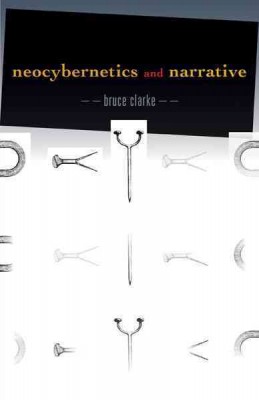| Neocybernetics and Narrative: Volume 29 Contributor(s): Clarke, Bruce (Author) |
|
 |
ISBN: 0816691029 ISBN-13: 9780816691029 Publisher: University of Minnesota Press OUR PRICE: $27.72 Product Type: Paperback - Other Formats Published: September 2014 |
| Additional Information |
| BISAC Categories: - Literary Criticism | Semiotics & Theory - Social Science | Media Studies - Language Arts & Disciplines | Rhetoric |
| Dewey: 808 |
| LCCN: 2013049861 |
| Series: PostHumanities |
| Physical Information: 0.56" H x 5.52" W x 8.46" (0.69 lbs) 248 pages |
| Descriptions, Reviews, Etc. |
| Publisher Description: Neocybernetics and Narrative opens a new chapter in Bruce Clarke's project of rethinking narrative and media through systems theory. Reconceiving interrelations among subjects, media, significations, and the social, this study demonstrates second-order systems theory's potential to provide fresh insights into the familiar topics of media studies and narrative theory. A pioneer of systems narratology, Clarke offers readers a synthesis of the neocybernetic theories of cognition formulated by biologists Humberto Maturana and Francisco Varela, incubated by cyberneticist Heinz von Foerster, and cultivated in Niklas Luhmann's social systems theory. From this foundation, he interrogates media theory and narrative theory through a critique of information theory in favor of autopoietic conceptions of cognition. Clarke's purview includes examinations of novels (Mrs. Dalloway and Mind of My Mind), movies (Avatar, Memento, and EternalSunshine of the Spotless Mind), and even Aramis, Bruno Latour's idiosyncratic meditation on a failed plan for an automated subway. Clarke declares the era of the cyborg to have ended, laid to rest as the ontology of technical objects is brought into differential coordination with operations of living, psychic, and social systems. The second-order discourse of cognition destabilizes the usual sense of cognition as conscious awareness, revealing the possibility of nonconscious and nonhuman forms of sentience. |